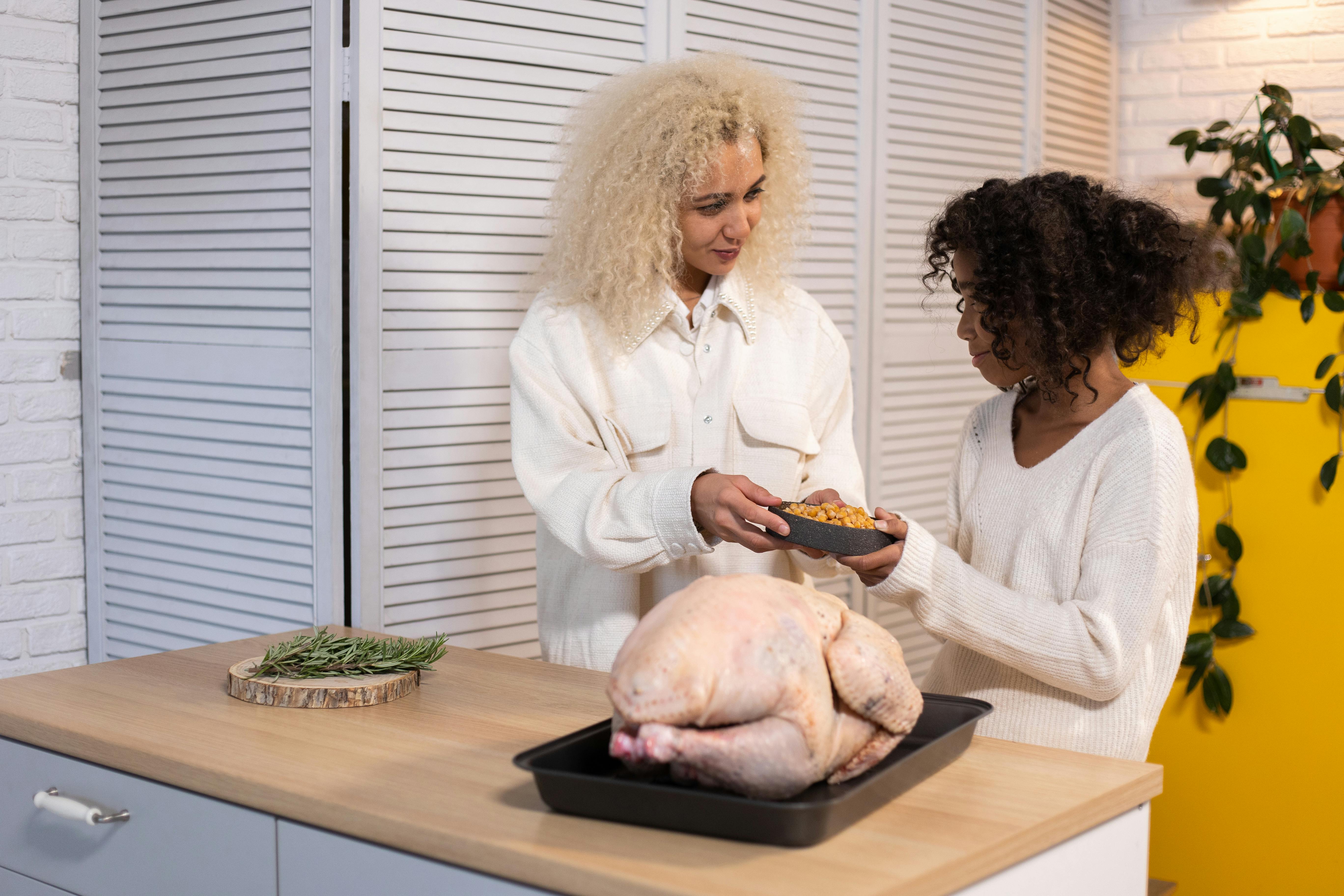Turkey giblets can make a tasty, nutritious treat for cats. They are packed with protein, vitamins and minerals that support feline health. However, raw giblets can harbor bacteria like salmonella. Proper cooking is essential to make giblets safe for your cat. Here is a step-by-step guide to preparing delicious turkey giblets for your furry friend.
What are Turkey Giblets?
Turkey giblets refer to the internal organs of a turkey, A typical giblet package contains
- Heart
- Liver
- Gizzard
- Neck
These organs are full of nutrients that cats need. Hearts and livers provide vitamin A, B vitamins, iron and zinc. Gizzards are a great source of protein and taurine.
Benefits of Feeding Turkey Giblets
There are many advantages to adding cooked giblets to your cat’s diet:
-
Protein-rich: Giblets provide high-quality, animal-based protein to support muscle growth and tissue repair.
-
Nutrient-dense: Giblets contain a variety of vitamins, minerals and amino acids that cats require. This includes iron, zinc, copper, taurine and B vitamins.
-
Natural cat food: As obligate carnivores, giblets mimic the whole prey that feral cats eat in the wild. This makes them easy to digest.
-
Good for dental health: Chewing giblets helps clean tartar off teeth and exercise jaw muscles.
-
Variety: Giblets add new textures, flavors and nutrients compared to regular cat food.
How to Cook Turkey Giblets for Cats
Follow these steps for safe, nutritious turkey giblets your cat will love:
Ingredients
- 1 lb turkey giblets
- 3 cups water
- Pinch of cat-safe herbs (optional)
Instructions
-
Rinse giblets well under cold water. Pat dry with paper towels.
-
Place giblets in a saucepan and add water until covered.
-
Bring to a boil over high heat. Reduce heat and simmer for 20-30 minutes until fully cooked.
-
Drain and set aside to cool. Chop or shred into bitesized pieces.
-
Season lightly with cat-safe herbs like parsley or catnip.
-
Refrigerate leftover portions for up to 4 days.
Feeding Guidelines
-
Always monitor your cat when feeding giblets.
-
Introduce new foods slowly and watch for signs of an upset stomach.
-
For cats and smaller dogs, chop giblets into small, bite-sized pieces.
-
Limit giblets to an occasional treat or 10% of daily calories.
Food Safety Tips
-
Only feed fully cooked giblets, never raw.
-
Avoid adding salt, onions, garlic or other seasonings.
-
Cook fresh giblets within 1-2 days; freeze for later use.
-
Refrigerate cooked giblets promptly in airtight containers.
FAQs
How long do you cook giblets for cats?
Cook for 20-30 minutes until the internal temperature reaches 165°F. Ensure there is no pink meat left.
Can I freeze leftover turkey giblets?
Yes, freeze cooled giblets in an airtight container for 2-3 months. Thaw in the refrigerator before feeding.
What’s the best way to chop giblets?
Use a sharp knife or kitchen shears to cut giblets into small, pea-sized bites for cats. This prevents choking.
How much should I feed my cat?
Feed a few small bites of giblets as an occasional treat. Limit to less than 10% of your cat’s daily calories.
Conclusion
From providing protein to mimicking natural prey, turkey giblets make an excellent addition to your cat’s diet. Follow a safe cooking method to eliminate bacteria before feeding. Chop giblets into bite-sized pieces and limit the amount to prevent stomach upsets. With these simple preparation tips, your cat can enjoy all the nutritional benefits of turkey giblets.

Keep One Eye OpenWhile you’re in your post-dinner turkey haze, keep one eye on any turkey remains disposed of in the trash. While tempting for your pet, the cooked carcass causes concern mainly because, as most of us know, the cooked bones do not digest in our pet’s digestive system and can penetrate or puncture the intestinal wall. When poultry bones have been cooked, their chemical makeup also changes, making them no longer pliable cartilage but sharp daggers ready to do harm.
Pets do not need the meat cooked in order to digest it. From personal experience, I found that most pets don’t do well with cooked turkey from our Thanksgiving meals. Most families that cook a Thanksgiving dinner like to baste their turkey with butter and oils that can upset our pets stomach because they aren’t used to the added condiments. The cooked skin can be of concern to those pets that may have sensitivities and the extra fat could throw them into a pancreatitis attack.
